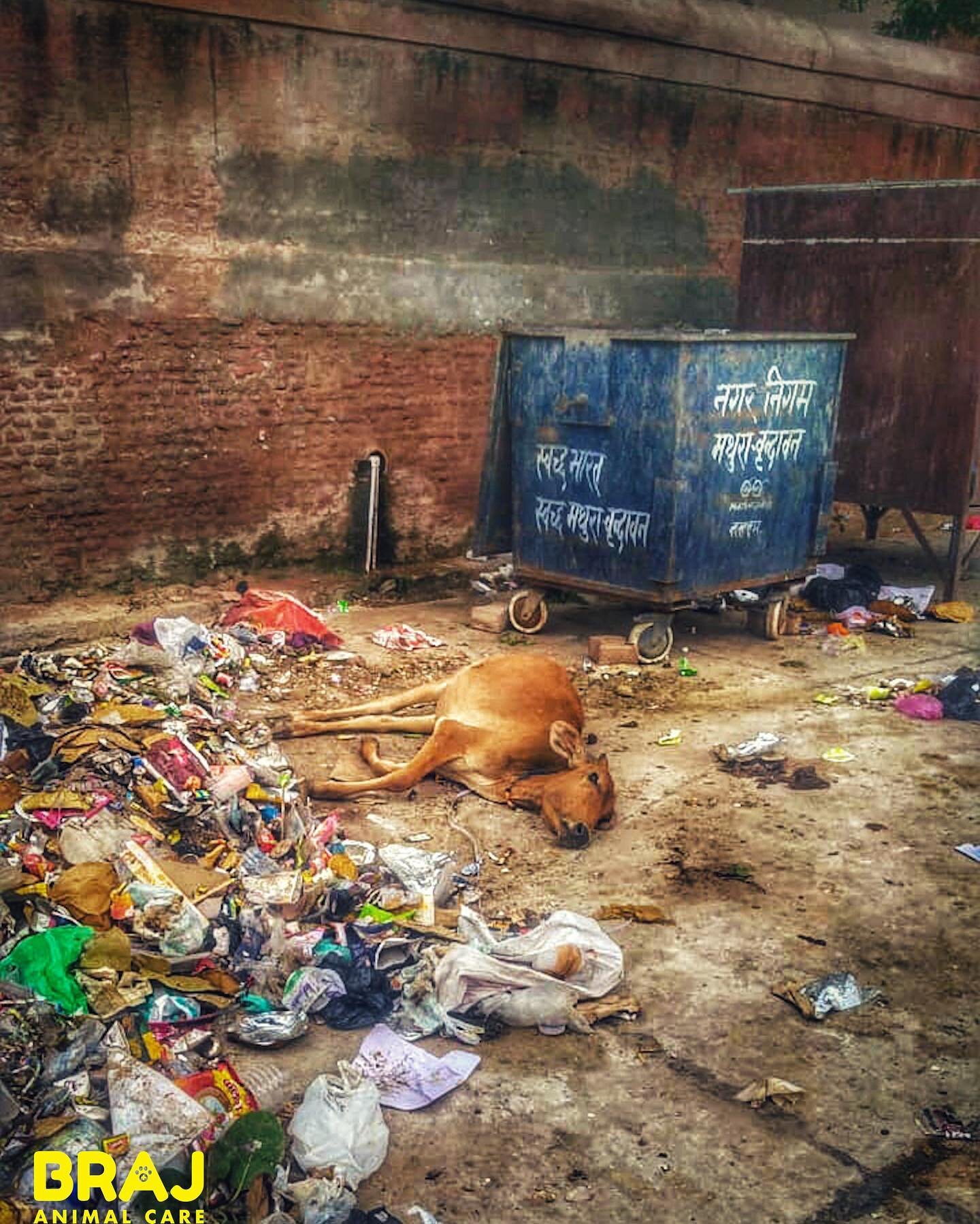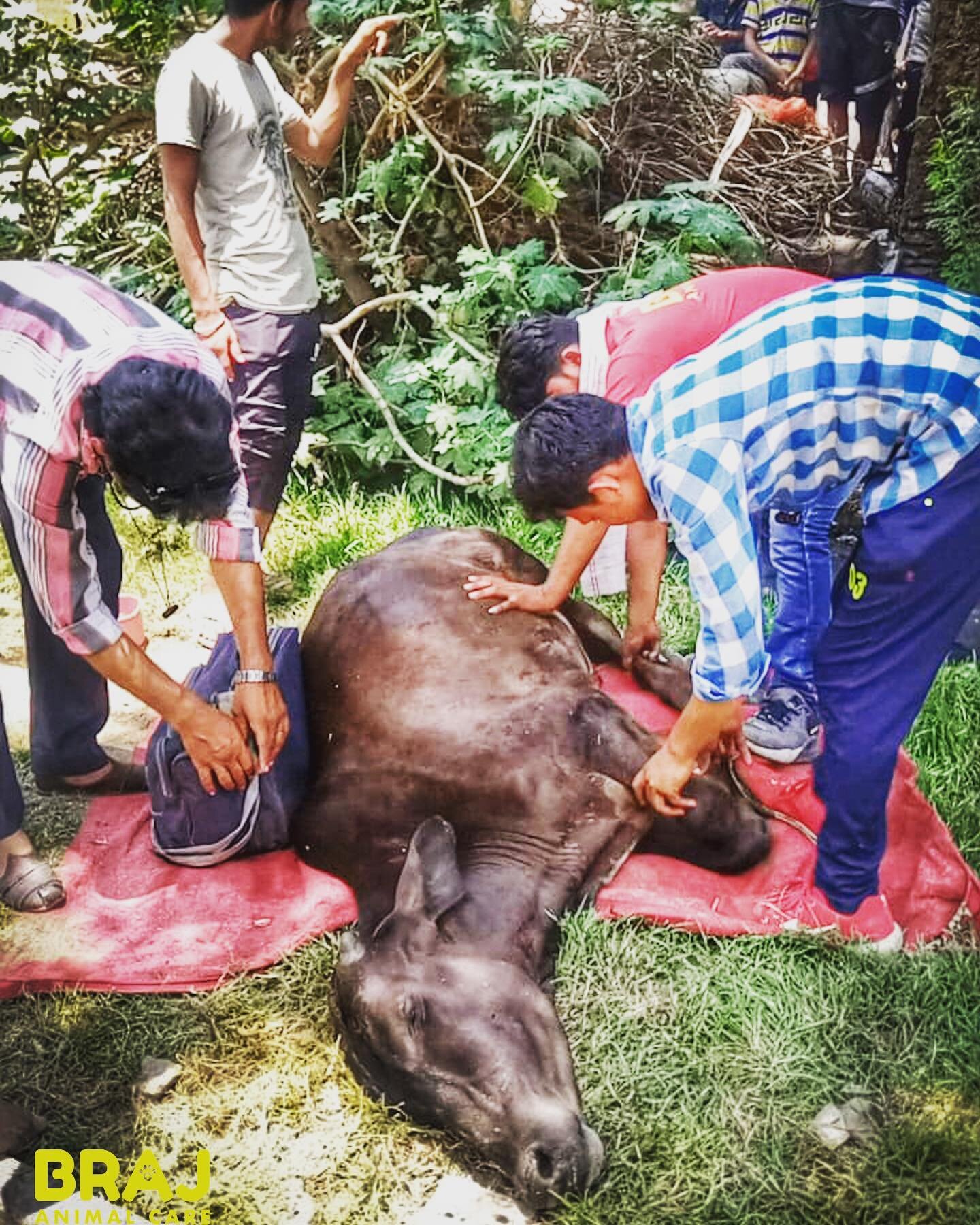In December, Braj Animal Care held vaccination and deworming drives in various parts of Braj Mandal. Most street animals suffer from parasites like maggots and intestinal worms. Without veterinary intervention, the animals have no choice but to suffer through it. In severe cases, animals do not survive such infestations. We are very happy to say that we provided deworming treatments to over 500 animals in the urban and rural areas of Braj during December alone.
A puppy receives treatment from our team
The process of seeking out animals for deworming helped us find many sick and injured animals we may not have known about otherwise. For example, whilst feeding deworming pills to street bulls in Vrindavan’s Chaitanya Vihar Phase 2, a local Brajwasi brought us to another alleyway where some severely ill puppies were hiding. Several of them were emaciated and flea-ridden, and two of them had dangerous maggot infestations in their heads. We were able to provide preliminary treatment for all of them and we are continuing to follow up on their cases.























